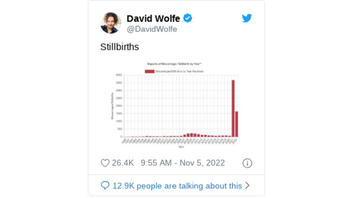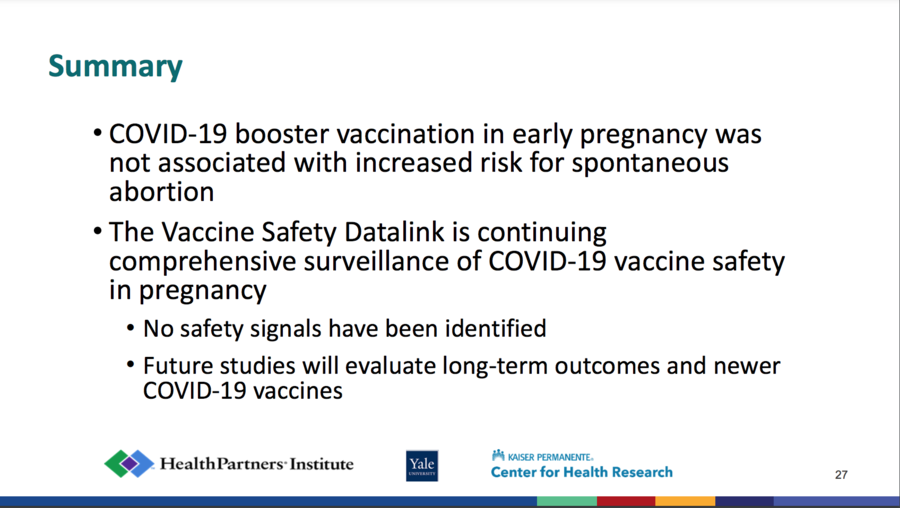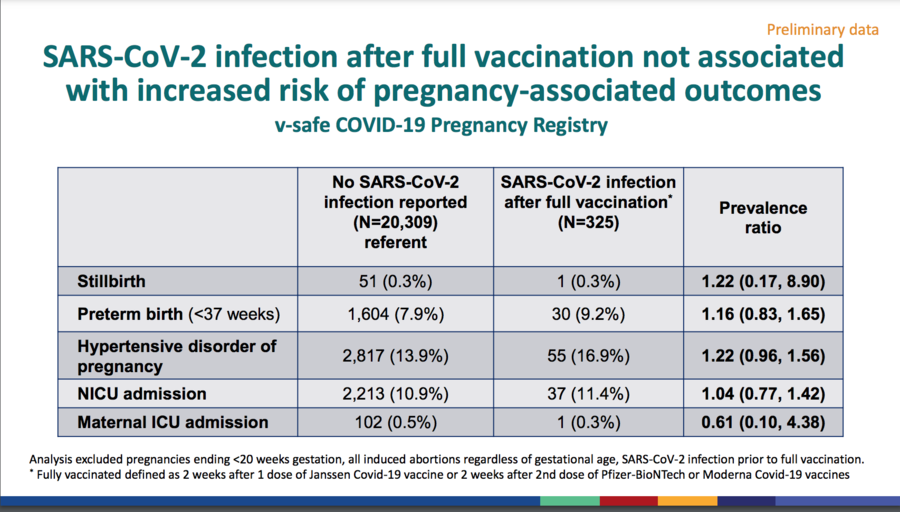
Does a graph show that the COVID-19 vaccine increases stillbirths? No, that is missing context: The graph was published on the U.S. government's Vaccine Adverse Event Reporting System (VAERS) website. As VAERS itself repeatedly explains, its purpose is to collect a wide-open, likely repetitive, messy and incomplete list of anecdotal, amateur, professional and even malicious reports of post-vaccination problems.
The graph does show a large increase in "reports" of miscarriages and stillbirths in 2021 and 2022, when the COVID vaccine was widely available. Experts told Lead Stories that there has been no increased risk of stillbirth following COVID vaccination but that a COVID infection can lead to an increase in miscarriages and stillbirths.
The claim appeared in a tweet (archived here) on November 5, 2022. It opened:
Stillbirths
This is what the post looked like on Twitter at the time of writing:
(Source: Twitter screenshot taken on Thu Nov 10 20:38:07 2022 UTC)
The word "stillbirths" appears above an unlabeled graph that has the title "Reports of Miscarriage / Stillbirth by Year**." The graph appears to be from the VAERS website, under the section titled "VAERS COVID Vaccine Reproductive Health Related Reports Through October 28, 2022."
Lead Stories reported on how VAERS reports are never proof of vaccine injuries or deaths here.
The Centers for Disease Control and Prevention's Immunization Safety Office (ISO) told Lead Stories via email on November 10, 2022, that they have "found no evidence of any increased risk of stillbirth after COVID-19 vaccination."
Studies have shown that COVID vaccination in pregnant people does not increase the risk of stillbirth and that it may decrease the risk. However, a COVID infection does increase the risk of stillbirth in pregnant people.
The CDC told Lead Stories that "there is no evidence of any increased risk of stillbirth after COVID-19 vaccination in either of the ISO surveillance systems' data (VSD [Vaccine Safety Data Link] and COVID-19 Vaccine Pregnancy Registry)." (The CDC is monitoring COVID vaccine safety during pregnancy in five different ways.)
The agency cited a new study titled "COVID-19 vaccine in pregnant people and infants ages 0-5 months," presented at its Advisory Committee on Immunization Practices in late October 2022, that it claimed "provided the larger picture of the most current data related to infection, vaccination, and effects on both pregnant people and infants."
As shown below, slide 27 in the study notes that "COVID-19 booster vaccination in early pregnancy was not associated with increased risk for spontaneous abortion."
(Source: CDC website screenshot taken on Thu Nov 10 20:50:12 2022 UTC)
Slide 36 states that "SARS-CoV-2 infection after full vaccination not associated with increased risk of pregnancy-associated outcomes":
(Source: CDC website screenshot taken on Thu Nov 10 20:53:22 2022 UTC)
Victoria Male, senior lecturer in reproductive immunology at the United Kingdom's Imperial College London, told Lead Stories via email on November 10, 2022, that she knows of 14 studies, done across eight countries and including more than 339,000 people vaccinated in pregnancy, that show no increased risk of stillbirth following COVID vaccination:
Some studies find a reduced risk of stillbirth among those who are vaccinated against COVID. This makes sense since we know that COVID infection can cause COVID, but there is also an extent to which people who take medical advice to get vaccinated during [pregnancy] are likely to be taking care of themselves in other ways, which might also reduce the risk of stillbirth. Similar data is available showing no increased risk of miscarriage following COVID vaccination.
Male explained to Lead Stories why there appeared to be more reports of pregnancy loss in VAERS for 2021 than 2020:
It's important to remember that VAERS collects reports of things that happen after vaccination, but not necessarily because of vaccination. That means the number of reports will be affected by the number of people being vaccinated. In 2021 approximately 180,000 people in the USA received a COVID vaccine in pregnancy, compared to almost none in 2020. Patients and doctors also tend to report more events to VAERS when a vaccine is new, which means that more adverse events will be captured for COVID vaccines than for older vaccines. For example, in the first two years that the HPV vaccine was available, there were 269 post-vaccine pregnancy losses reported to VAERS, compared to 29 in the most recent two years. Note that the numbers are much lower for HPV vaccine since this is largely given to teenagers, in contrast to the COVID vaccine, which was given to all adults, including those who are already pregnant.
The public has been "encouraged, by doctors and vaccine administrators, to report adverse events to VAERS, and to V-safe," the CDC said of the increased number of reported stillbirths on VAERS.
Additional Lead Stories fact checks about the COVID-19 vaccine and pregnancy can be found here.




















